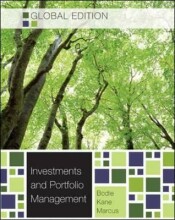Mutual funds and other investment companies - Mutual funds
8 important questions on Mutual funds and other investment companies - Mutual funds
What are mutual funds?
Mutual funds are the common name for open-end investment companies.
What are money market funds?
What are equity funds?
- Higher grades + faster learning
- Never study anything twice
- 100% sure, 100% understanding
What is the difference between income funds and growth funds?
Income funds tend to hold shares of firms with consistently high dividend yields. Growth funds are willing to forgo current income, focusing instead on prospects for capital gains. Growth stocks, and therefore growth funds, are typically riskier and respond far more dramatically to changes in economic conditions than do income funds.
What are the several international funds?
What are balanced funds and the several types of balanced funds?
What are asset allocation and flexible funds?
What are index funds?
The question on the page originate from the summary of the following study material:
- A unique study and practice tool
- Never study anything twice again
- Get the grades you hope for
- 100% sure, 100% understanding





























